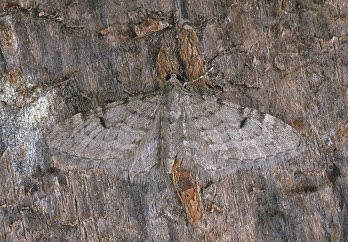The latest incarnation of this fine
Metal Ensemble
(featuring Robert Trujillo on Bass Guitar)
Here's wishing all our Readers past, present and future a
HAPPY, HEALTHY and PROSPEROUS
NEW YEAR
please keep tuning in and tell yer Mates!
So,
we have come to the end of another Year and with it another Moth Season, and successful it was
considered. With most of the equipment now cleaned, lashed up and stowed we have taken the precaution of leaving one trap in the field just in case of that unexpected mild night. In
all, talking of Macro Moths only, we recorded 351 species of which 17
were additions to the Parley Court Farm List. There would have been no
prizes awarded for guessing the final species to be caught during 2016,
which was fittingly
DECEMBER MOTH
with the additions following in chronological order.A couple or 3 of the images below have been 'borrowed'.
SALLOW CLEARWING
but only recorded as a Gall.
DOTTED CHESTNUT
LACE BORDER
(a 'rarety' in Dorset and only the 3rd County Record)
(a 'rarety' in Dorset and only the 3rd County Record)
OBLIQUE CARPET
POPLAR KITTEN
FREYER'S PUG
SCARCE MERVEILLE du JOUR
FEN WAINSCOT
HUMMING-BIRD HAWK-MOTH
ANOMALUS
SOUTHERN CHESTNUT
We also had something of a 'stranger in the camp',
an Insect that rarely comes to light, a 'female'

DECEMBER MOTH
shown here with a 'male' for comparison.
The following day this note was received from one of my mentors.
Hi Bagsy, just seen your female December Moth on the blog. Just for info this appears to be a 'very rare' pale aberration. I've never seen one before but by a bizarre quirk of nature, Phil (Dr Phil Sterling that is, Coast & Countryside Service Manager, Dorset County Council and author of the Field Guide to the Micro Moths of Great Britain and Ireland)
had an identical one at Bexington last night. 'Normal' females are very similar to males, just obviously larger and marked slightly differently. This is something quite different, quite stunning!
HUMMING-BIRD HAWK-MOTH
ANOMALUS
SOUTHERN CHESTNUT
We also had something of a 'stranger in the camp',
an Insect that rarely comes to light, a 'female'

DECEMBER MOTH
shown here with a 'male' for comparison.
The following day this note was received from one of my mentors.
Hi Bagsy, just seen your female December Moth on the blog. Just for info this appears to be a 'very rare' pale aberration. I've never seen one before but by a bizarre quirk of nature, Phil (Dr Phil Sterling that is, Coast & Countryside Service Manager, Dorset County Council and author of the Field Guide to the Micro Moths of Great Britain and Ireland)
had an identical one at Bexington last night. 'Normal' females are very similar to males, just obviously larger and marked slightly differently. This is something quite different, quite stunning!
As for the 'speciality' here it was a reversal of fortunes for the
with the majority of the specimens taken in 2015 being from the
First Generation - May and June while this year it was
Second Generation - July to September.
A potted history shows that the very first trapped here was on 15/04/2014,
with the extreme dates in 2015 being 25/04 to 25/07 while for 2016
they were caught between 21/07 and 02/09.
Something of a Chinese New Year to end, Many, Many Thanks!
| Entry | Pageviews |
|---|---|
China
|
4102 and as if to send us into the New Year with a smile on our face!
|
United States
|
394
|
United Kingdom
|
310
|
Russia
|
89
|
Germany
|
76
|
France
|
23
|
Estonia
|
18
|
Ireland
|
13
|
Ukraine
|
10
|
Canada
|
7
|



























